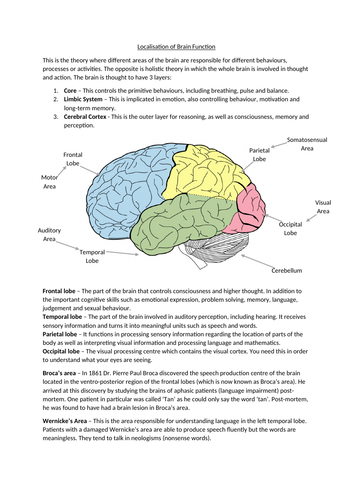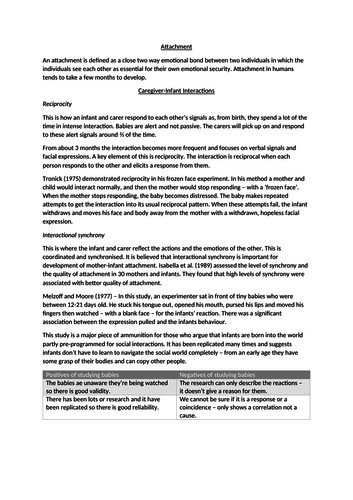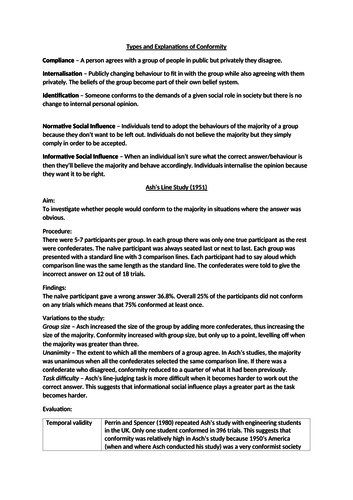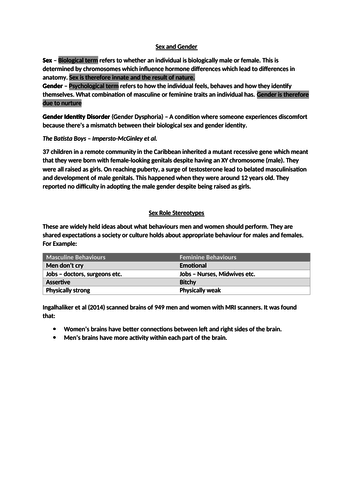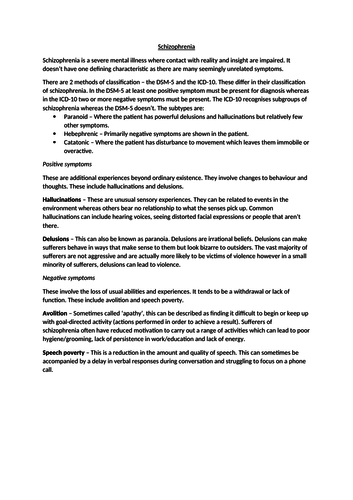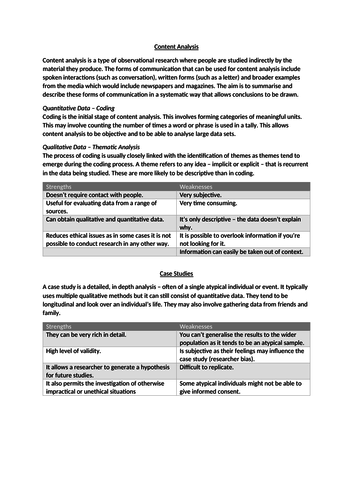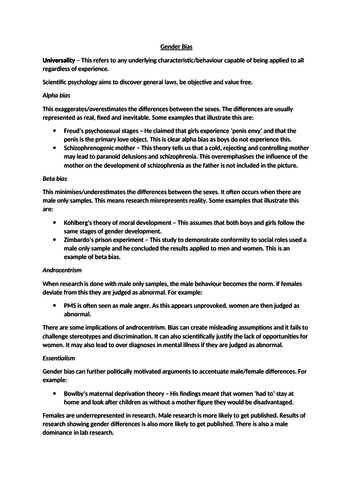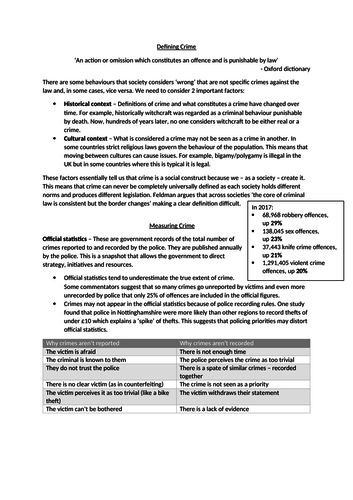
12Uploads
2k+Views
60Downloads
Psychology

Biopsychology Revision Guide- AQA A2 Psychology
Revision guide on the biopsychology section of AQA A Level Psychology.
It contains the topics of localisation of function, neuroplasticity/functional recovery, hemispheric lateralisation and split brain research, ways of studying the brain and circadian, infradian and ultradian rhythms. It also includes comprehensive AO3 evaluations and key studies.

Attachment Revision Guide- AQA AS Psychology
Revision guide on the attachment section of AQA AS Psychology.
It contains the topics of caregiver-infant interactions, stages of attachment and animal studies of attachment (Lorenz’s ducks and Harlow’s monkeys). It also includes notes on Bowlby’s monotropy theory and the learning theory explanation of attachment. As well as Ainsworth’s strange situation, cultural differences, Bowlby’s theory of maternal deprivation and institutionalisation (Romanian orphans). It also contains comprehensive evaluations and research support.

Memory Revision Guide - AQA AS Psychology
Revision guide on the memory section of AQA A Level Psychology.
It contains the topics of the multi store memory model, types of long term memory, the working memory model, forgetting and eyewitness testimony (including the cognitive interview). It also includes comprehensive evaluations and key studies.

Social Influence Revision Guide- AQA AS Psychology
Revision guide on the social influence of AQA AS Psychology.
It contains the topics of conformity, obedience, resistance to social influence, minority influence and social change. It also covers the key studies: Asch’s line study, the Stanford prison experiment and Milgram’s obedience study. As well as comprehensive AO3 evaluations for them all.

Gender Revision Guide- AQA A2 Psychology
Revision guide on the gender section of AQA A Level Psychology.
It contains the topics of sex and gender, sex role stereotypes, androgyny and the role of chromosomes and hormones. It also includes the explanation of gender: Kohlberg’s theory (cognitive), schema theory (cognitive), the psychodynamic theory, social learning theory and the influence of culture and media on gender. It also contains comprehensive AO3 evaluations and key studies throughout.

Schizophrenia Revision Guide - AQA A2 Psychology
Revision guide on the schizophrenia section of AQA A Level Psychology.
It contains the topic of the diagnosis and classification of schizophrenia and its evaluations. It contains the biological explanations - including genetics, the dopamine hypothesis and neural correlates - as well as the treatments: typical and atypical antipsychotics. It also contains the psychological explanations of schizophrenia: family dysfunction and cognitive explanations - as well as the treatments of CBT, family therapy and token economies. To round it off, the interactionist approach is covered - as well as comprehensive AO3 evaluations for all topics.

Research Methods Revision Guide- AQA A2 Psychology
Revision guide on the research methods section of AQA A Level Psychology.
It contains the topics of content analysis, case studies, reliability and validity, statistical tests, features of science and sections of a scientific report .

Issues and Debates Revision Guide - AQA A2 Psychology
Revision guide on the Issues and Debates section of AQA A Level Psychology.
It contains the following topics: gender bias, free will vs determinism, nature vs nurture, holism vs reductionism, idiographic vs nomothetic, and ethical implications of research.

Forensics Revision Guide - AQA A2 Psychology
Revision guide on the Forensic Psychology section of AQA A Level Psychology.
It contains the following topics: Defining and measuring crime; offender profiling - including the top-down approach and the bottom-up (and geographical profiling); explanations of offending - A historical approach to offending behaviour, Genetic and neural explanations, Eysenck’s theory of the criminal personality, Cognitive explanations, Differential association theory and Psychodynamic explanations; and dealing with offending behaviour - Custodial sentencing, Behaviour modification, Anger management and Restorative justice.

